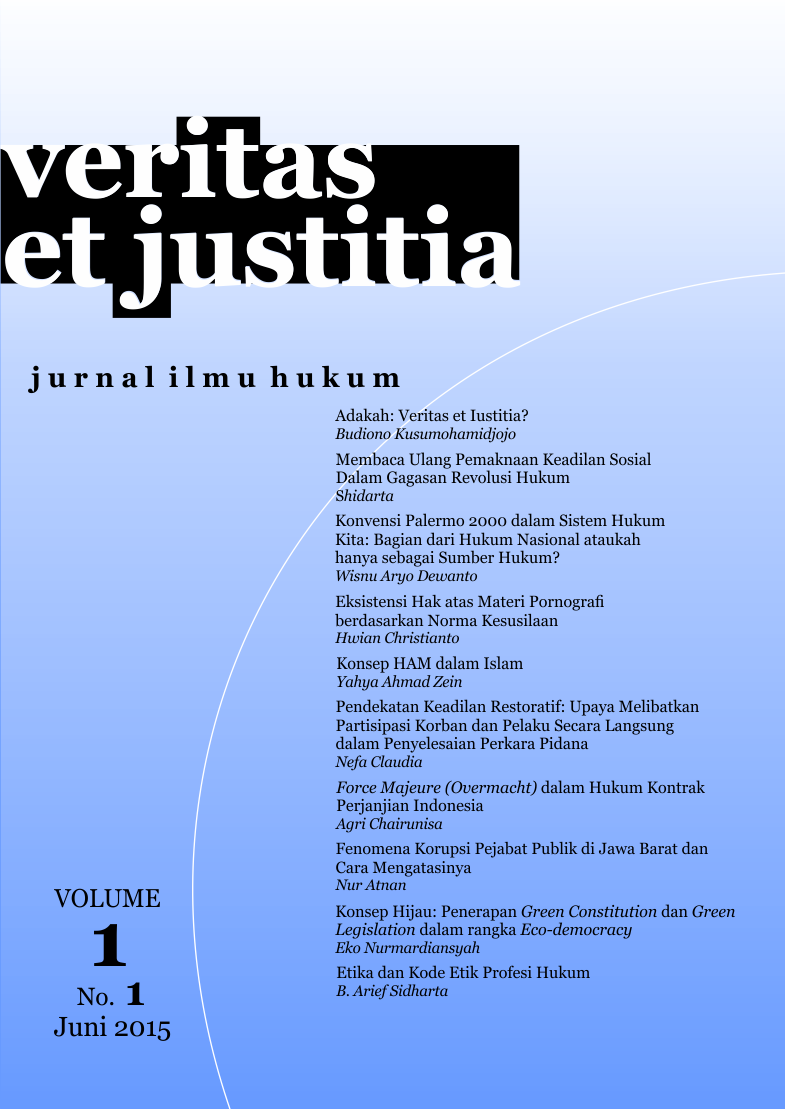AKIBAT HUKUM PERATIFIKASIAN PERJANJIAN INTERNASIONAL DI INDONESIA: STUDI KASUS KONVENSI PALERMO 2000
DOI:
https://doi.org/10.25123/vej.v1i1.1416Abstract
Abstract
Ratification in Indonesia does not have any legal consequences for the application of the treaties at national level. The reason is that ratification only binds Indonesia as a subject of international law. In comparison, parliamentary approval in the Indonesian context is not the same as the United States Senate’s approval. The Indonesian Government signed the Palermo Convention on December 12, 2000 and ratified it on April 20, 2009. The issue discussed here regards the legal status of this Convention. In the 80’s it was assumed that any treaties ratified or acceded, would ipso facto be enforceable in Indonesia. I argued that Indonesia should be regarded as a state applying the monist approach, which legal practice seems to reject. I stand for the monist approach especially with regard to the legal status of the 2000 Palermo Convention. In addition I also argue about the importance of differentiating between Indonesia’s international obligations and the issue of direct applicaton of the Convention by national couts.
Keywords:
Ratification, Integration, Implementation, Treaty, Indonesia’s legal systemDownloads
Published
Issue
Section
License
Authors who publish with this journal agree to the following terms:
Authors retain copyright and grant the journal right of first publication with the work simultaneously licensed under a Creative Commons Attribution License that allows others to share the work with an acknowledgement of the work's authorship and initial publication in this journal.
Authors are able to enter into separate, additional contractual arrangements for the non-exclusive distribution of the journal's published version of the work (e.g., post it to an institutional repository or publish it in a book), with an acknowledgement of its initial publication in this journal.
Authors are permitted and encouraged to post their work online (e.g., in institutional repositories or on their website) prior to and during the submission process, as it can lead to productive exchanges, as well as earlier and greater citation of published work.
The Journal allow the author(s) to hold the copyright and to retian publishing rights without restrictions.




